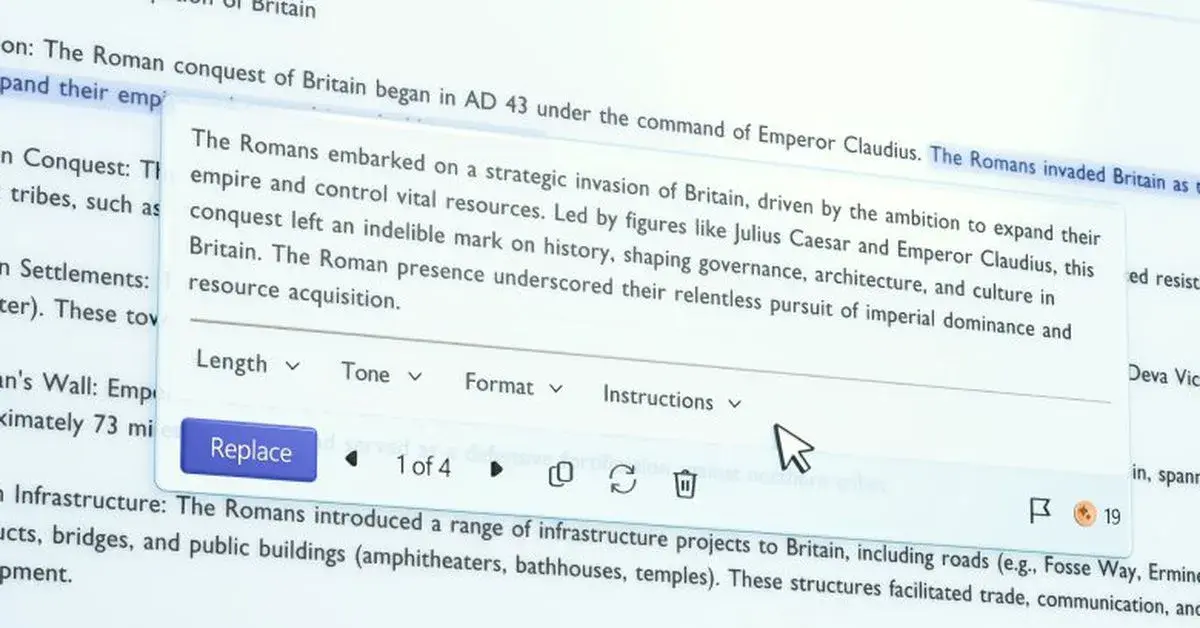- cross-posted to:
- privacy@lemmy.ml
- cross-posted to:
- privacy@lemmy.ml
Microsoft said 2024 was going to be “the year of the AI PC,” and it looks like that’s ringing true already. Microsoft appears to be readying a new generative AI feature for its Notepad application that’s built into Windows. While the software giant hasn’t officially announced it, eagle-eyed Windows watchers have discovered code in Microsoft’s latest test builds of Windows 11 that indicate a new “Cowriter” feature could be on the way soon.
It looks like it has the same credits system that Microsoft uses in its Cocreator feature in Paint to let Windows users know how many more times they can use these AI-powered features. Microsoft hasn’t announced pricing for these credits yet, but one can assume the company will eventually start charging once you run out of them. Bing uses a similar system, but once you run out of “daily boosts,” the image creation through DALL-E simply slows down.
New Notepad feature soon™️ pic.twitter.com/yv6axwuG2e
— PhantomOcean3 ☃️ (@PhantomOfEarth) January 9, 2024
Other Windows testers have even found references to a waitlist for the feature and a hero image that Microsoft may use to market its new Notepad Cowriter. The style of the image is identical to how Microsoft markets its Copilot features inside Office apps like Outlook, Word, and PowerPoint.
This could indicate that Microsoft is close to officially announcing the Cowriter feature for beta testing, in the same way that it tested the Paint generative image feature for months before it was rolled out to all Windows 11 users.
Now, I’m old enough to remember a time when Notepad was but a mere simple Windows app that had barely been touched for more than three decades. Microsoft has been greatly improving Notepad on Windows 11 in recent years, adding a dark mode, tabs, character count, features like autosave and automatic restoration of tabs, and even a virtual fidget spinner.
I don’t think I’m alone in not wanting these kind of AI features built directly into Windows apps as a means to upsell users into buying AI credits. I’d rather see Microsoft continue on its path of improving Notepad in meaningful ways, especially since it’s removing WordPad from Windows after nearly 30 years. If Notepad is going to get another new feature, please let it be an optional spellcheck instead of a computer hallucinating into my text editor.



Notepad++ has a ton of other features too. Until recently I still used the normal Notepad for quick copy-edit-paste stuff, but now it seems like keeping Notepad++ open all the time to use as a “buffer”, is more efficient.
I do the same with kate, rather than notepad++. I’m a Linux user at heart, and when my favourite Linux editor got ported to windows, I get to use it at work too :)
The only thing I miss in kate is the ability to keep open temporary files forever like in notepad++
You can use windows key+v to view previously copied stuff
For keeping copy paste stuff, I use a clipboard manager that lets me edit and pin and search the clip board history
Which of those three features do you use the most?
Search, I’m a programmer and frequently need clips of text I’ve used before, especially with some sap stuff I do. I don’t need to edit that much, but I do pin, tag, and label snippets a lot.
Sap backend data has a lot of “keys” related to my test user that I need repeatedly, the key for the user, the key for their position, the department, etc. and having them all in my clipboard is very practically.
Yep! I switched to Notepad++ almost 15 years ago, and have never regretted it. It’s one of very, very few softwares that I’ve never had any complaints about, not even any mild “that’s kind of annoying” moments. Although apparently I’ve been missing out on a digital fidget spinner. :D
Yeah, TIL about the fidget spinner feature, apparently it also works in the Task Manager, wonder if they’re made by the same team or something.
My somewhat paranoia fueled “fidget spinner”, coming from the age when a PC would hang without previous notice, is to double tap Num Lock or Caps Lock, to see if the indicator light would cycle. It used to be more effective before OSs started hooking it, when it was handled directly by the BIOS, meaning a difference between “it’s processing” vs “reboot time”. Nowadays, on some keyboards the Fn Lock still doesn’t get hooked, but is linked more to the keyboard itself still working or not.